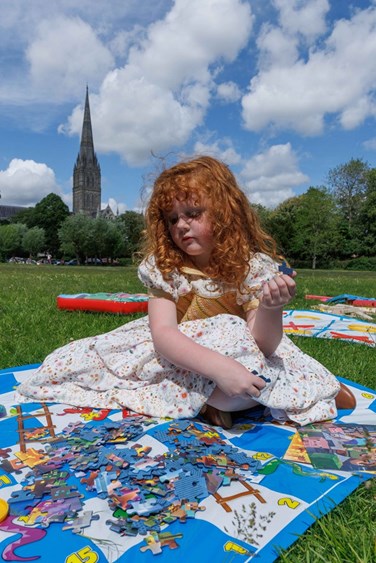THE Church must wake up to the extreme inequalities experienced by Gypsies, Travellers, and Roma, a conference held at Salisbury Cathedral and Sarum College heard on Wednesday.
A high percentage of people attending the Sanctuary Roads event on Thursday — jointly organised by the diocese of Salisbury and the ecumenical organisation Gypsy, Roma and Traveller Friendly Churches — were from those communities, many of whom spoke, including teenagers, something that the keynote speaker, the Revd Steven Horne, was “blown away” by.
He is the author of Gypsies and Jesus: A Traveller theology, and has spoken at conferences around the world, generally events for community activists and focused on social action. “Here, we had lots of teenagers and young children, because Traveller families tend to do things in family groups,” he told the Church Times afterwards.
“Seeing their reverence for the occasion in the cathedral was feasible evidence of the faith that I know to be there. Media representation is mostly on sensationalist programmes — [teenagers] were saying they just wanted to be able to speak to people about how Jesus works among Travellers and Gypsies, and how he’s always been with us in our communities.
“I told the young people, ‘This [conference] is for you, because you’re going to be the next generation that comes through and takes this message forward.’ They really did listen, and they really did take on that message.”
 Neil Turner/Diocese of SalisburyChildren play games on the cathedral green as part of a fair after the conference, on Wednesday
Neil Turner/Diocese of SalisburyChildren play games on the cathedral green as part of a fair after the conference, on Wednesday
There are an estimated 300,000 Gypsies and Travellers and 200,000 Roma in the UK. In 2019, the General Synod passed a motion that called on the Church of England to speak out against racism aimed at these groups, appoint chaplains, and make land available for Traveller sites (News, 1 March 2019).
The Salisbury diocesan chaplain to the communities, Canon Jonathan Herbert, said that the Sanctuary conference was “a chance for the Church to see where it has made progress and where it has so far failed to act. . .
“We hope this may be a turning point in encouraging churches to realise the blessings that come when they begin to engage with the rich cultural diversity and deeply held Christian faith of Gypsy Roma and Traveller communities.”
In 1881, the diocese appointed the Revd Thomas Holt as its first “Missioner to Itinerant Van Dwellers” — a chaplaincy post that continued until the First World War.
The Bishop of Salisbury, the Rt Revd Stephen Lake, told the conference: “I promise that I will take the commitment this diocese has shown into all of the places I go, because of you; because of the commitment this diocese has made over the years.”
Betty Smith-Billington, of the Dorset-based charity Kushti Bok, which advocates for the communities, said: “As a Romany Gypsy woman, I am pleased to see the Church taking a lead in partnering with Gypsy, Roma, and Traveller communities to stand against the racism and prejudice my community has faced for centuries.
“Often, when it comes to racial justice, my community has been the forgotten people, incurring stricter punishment than their non-Gypsy counterparts. May the voices of [these communities] be heard and concrete actions taken to bring us racial justice.”
Mr Horne, whose father was a Romany Gypsy, told the conference: “Our promised land is a vision of equality: a society where Gypsies, Travellers, and Roma walk without fear; where schools celebrate our language and traditions; where housing is secure; where our children grow up proud.
“This promise, because of the mistreatment we’ve experienced, seem utopian. But the promise itself is a powerful spark that fuels our steps today.”

















